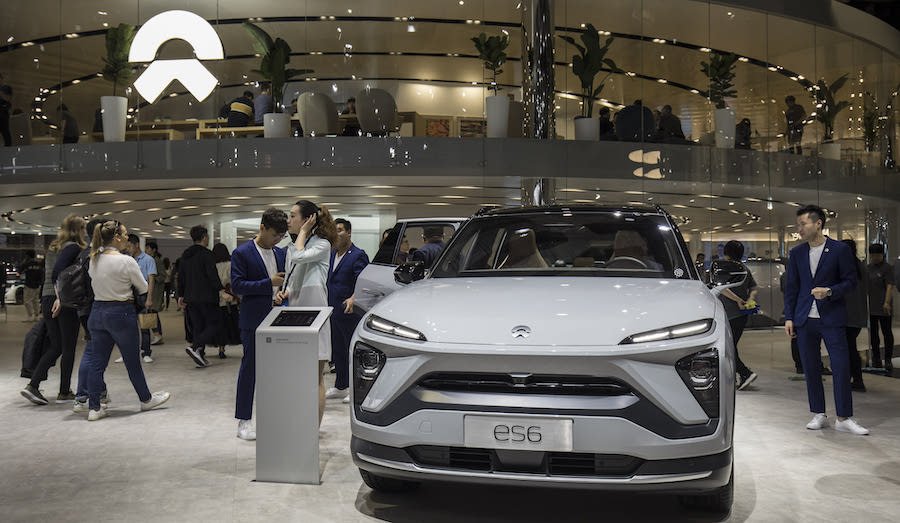The electric vehicles of Chinese carmaker NIO (NYSE: NIO), a major rival of Tesla, have reached Israel as part of an advanced development project with Mobileye that was announced last November.
As part of the project, NIO will manufacture and install in each of its electric vehicles 'kits' for level four autonomous driving (driverless cars in pre-defined lanes and under restrictions) that have been developed by Mobileye.
These level four vehicles will ultimately be used as robo-taxis to provide mobility-as-a-service (MAAS) (driverless ride-hailing services) although they will also be sold to private individuals. Under the terms of the agreement, NIO will mass-produce the kits in for other projects being carried out by Mobileye. Mobileye will also develop for NIO a system enabling driverless electric cars to navigate directly and on the shortest route to the nearest charging point, when the battery is nearly empty and implement the charging process without any human intervention.
NIO has sent its ES38 model to Israel for R&D purposes only. The car only came onto the market in China in March and has two cross-over engines with more than 500 horsepower and a 100 kilowatt per hour battery that gives the car a range of 580 kilometers between charges (by the NEDC standard). The car's price in China begins at $67,000 before tax benefits.
After Mobileye has installed its kit into the NIO electric car, the two companies will undertake test journeys and further development in Israel including on the country's roads.
NIO is one of China's leading electric car manufacturers. Between January 2019 and May 2020 the company sold 39,000 cars including 6,990 cars this year, up 38% in 2020 despite the coronavirus crisis.
It remains unclear when NIO will begin exporting cars to Israel for the vehicle market here. The company has been in talks with Israeli importers but no agreements have been reached and for the time being NIO has no Israeli dealer or concrete marketing plan here.
NIO is one of the few companies worldwide that adopted failed Israeli company's Better Place's technology for swift battery swapping, and it has such a network around China for the exchanging of batteries.
Last week, Mobileye screened a video clip of a trial run by an R&D autonomous car. During the trial, the vehicle traveled tens of kilometers around busy central Jerusalem streets in traffic conditions that required the most complex decision making.
Related News

